We humans have successfully photographed a black hole, landed rovers on Mars, and sent spacecraft to the dark side of the moon. However, our very own planet remains one of the last unknown frontiers – one that is deceptively familiar, too.
The ocean is the lifeblood of Earth, covering over 70 percent of the planet’s surface, driving weather, regulating temperature, and ultimately supporting life. Throughout history, the ocean has been a vital source of transport, commerce, growth, and inspiration.
But more than 80% of the ocean remains unexplored.
Drawn by this mystery, Taipei-based photographer Wu Yung-sen has been shooting underwater for years.
More info: Facebook | 500px
During a recent dive, underwater photographer Wu Yung-sen had a rare opportunity to shoot a larval Wunderpus octopus
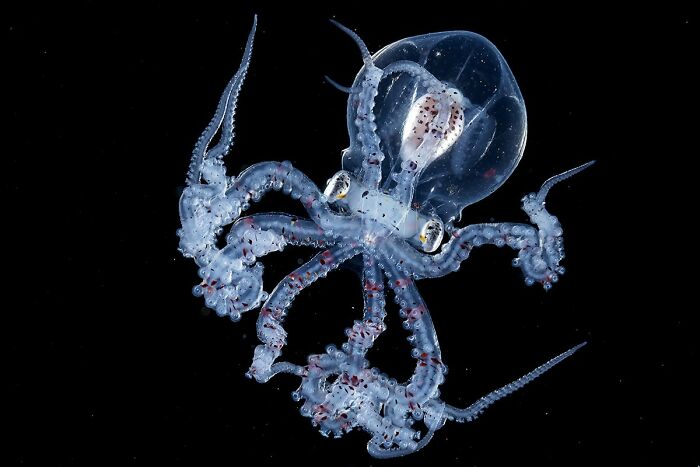
Image credits: yung-sen wu
The incredible images highlight just how delicate this creature is; the baby’s transparent body allows an observer to even see its brain
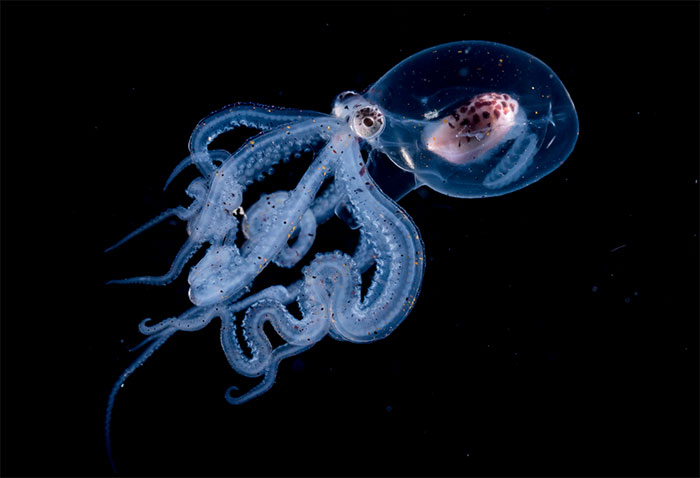
Image credits: yung-sen wu
The Wunderpus is important to not only photographers, but dive tourism and home aquarium trades as well
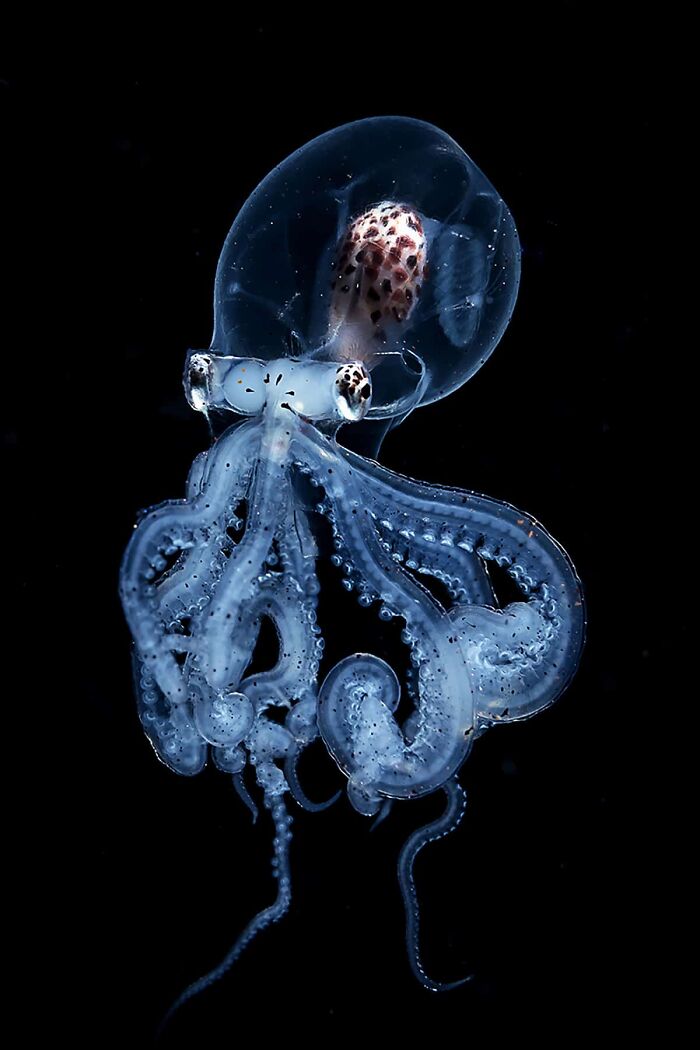
Image credits: yung-sen wu
However, little is known of its life history and behavior, as the species was discovered in the 1980s and only officially described in 2006
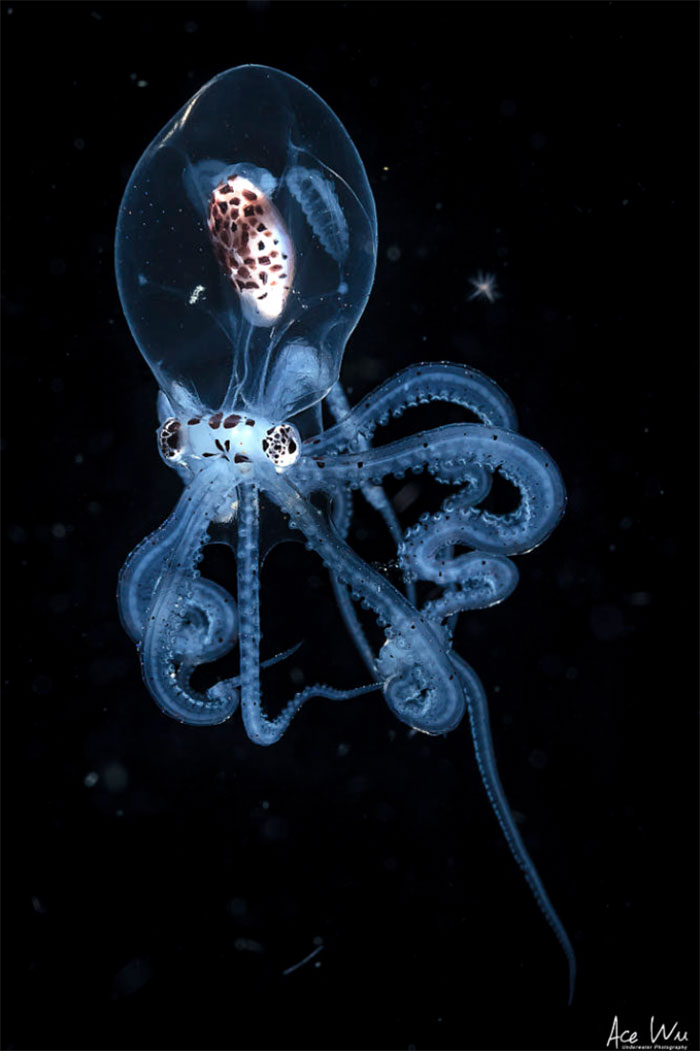
Image credits: yung-sen wu
Wu Yung-sen’s portfolio has a lot of other cool creatures too
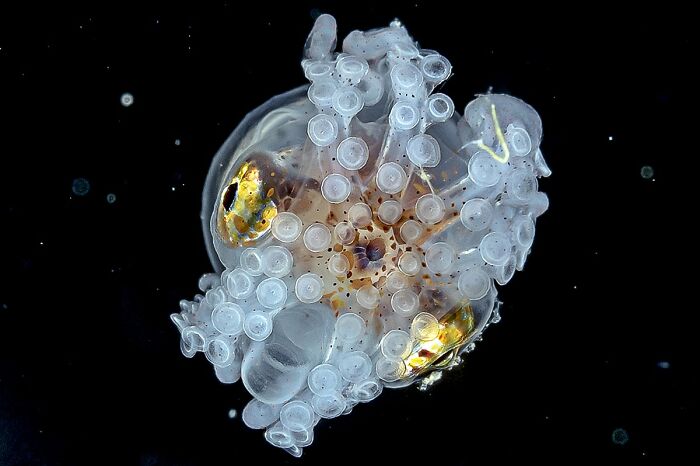
Image credits: yung-sen wu
“I heard about blackwater photography during a conversation with my friends and I immediately started working in this unique field,” Wu Yung-sen told Bored Panda. “First of all, you must learn the characteristics of blackwater creatures. Then you have to understand which areas are suitable for this activity, how to attract blackwater creatures, and how to keep yourself safe.”
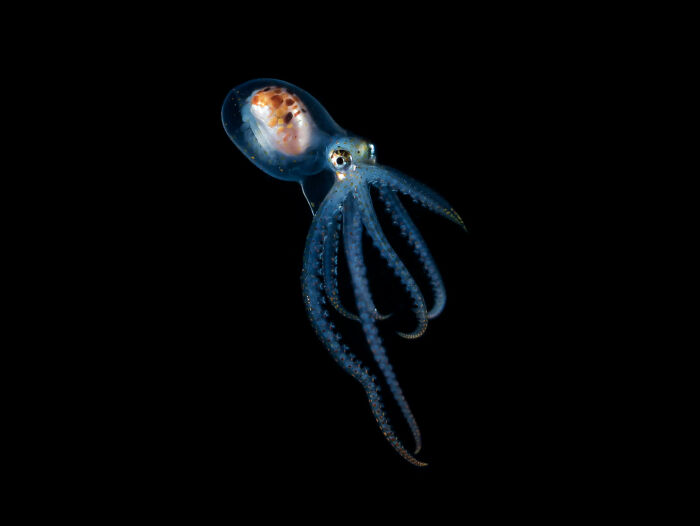
Image credits: yung-sen wu
Wu Yung-sen said that after one completes all the above, everything basically boils down to luck. “I come back with nothing from most of my shoots.”
“My shooting depth is usually about 15-30 meters (50-100 feet), because the movement range of blackwater creatures is around 5 to 2000 meters (16 to 6,500 feet),” the photographer explained. “I can’t go any deeper than 45 meters (147 feet) because of the limitation of [my] diving equipment.”
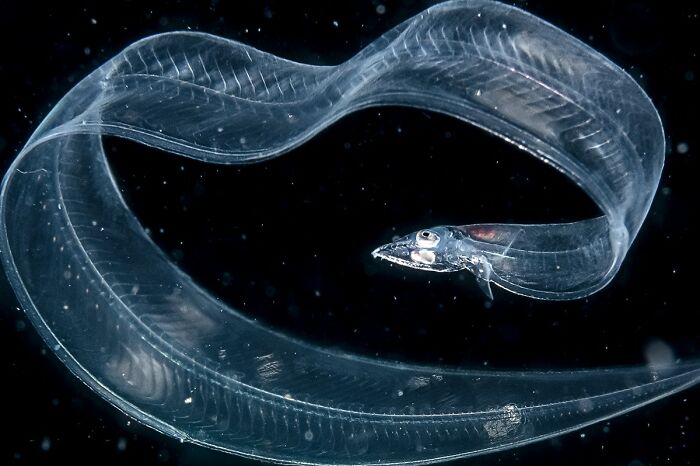
Image credits: yung-sen wu
“I would be lying if I said I wasn’t scared in the dark. However, the desire to find these strange creatures gave me the power to overcome fear,” the photographer said
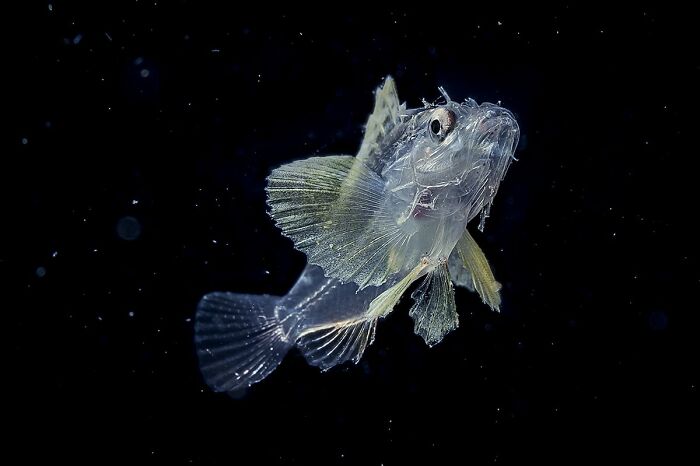
Image credits: yung-sen wu
When it comes to actually pulling off the desired shot, Wu Yung-sen said the most difficult thing to control is the reflection of suspended particles matter in water. “If the position of the underwater flashlight is wrong then the subject will not be sharp enough.”
“Getting the correct light will reduce the reflection of suspended particles and the subject will stand out in the photo. In addition, most of the blackwater creatures are transparent, and the eye area is easy to overexpose.”
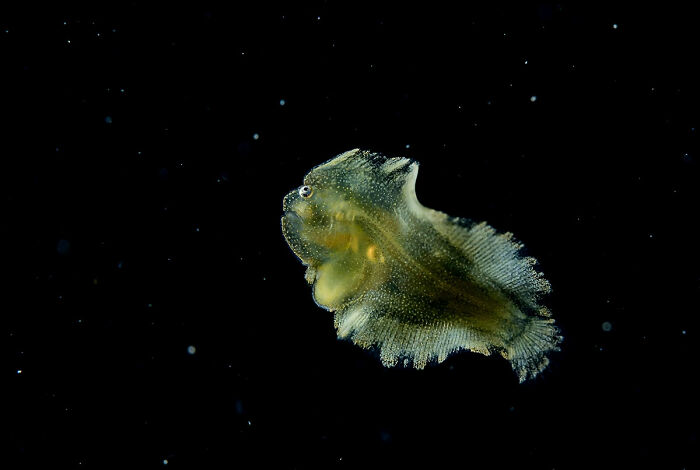
Image credits: yung-sen wu
“For underwater photographers, capturing blackwater creatures is a privilege”
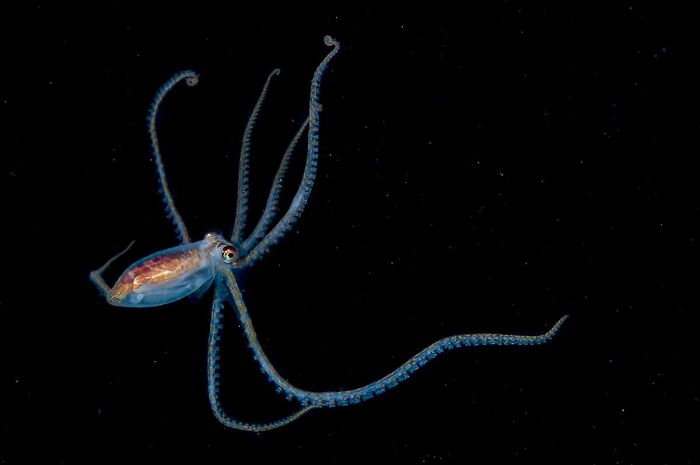
Image credits: yung-sen wu
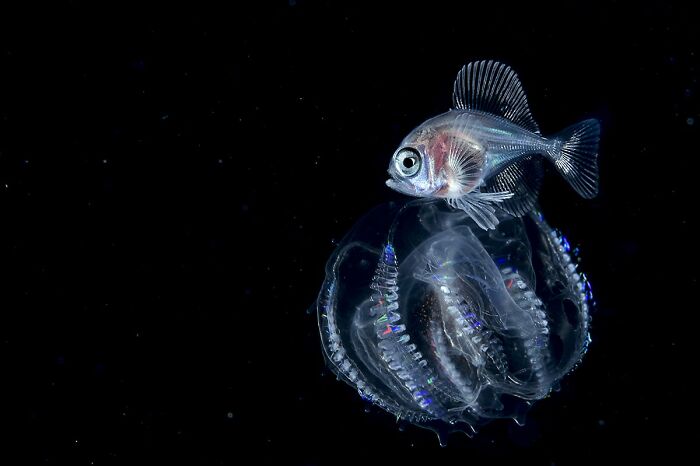
Image credits: yung-sen wu
“It’s also an adventure because you never know what shots you will get”
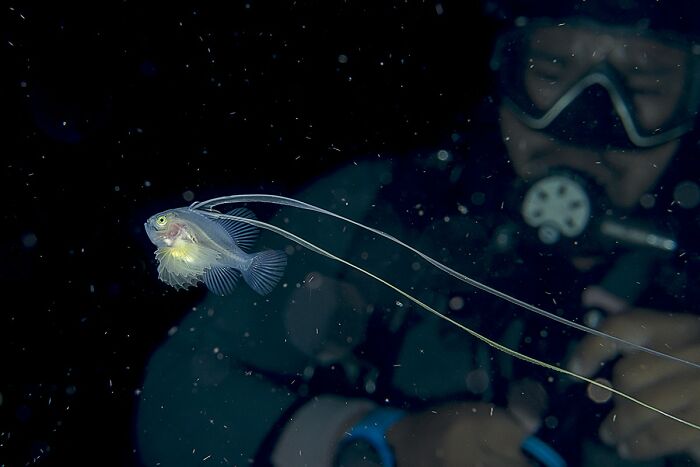
Image credits: yung-sen wu
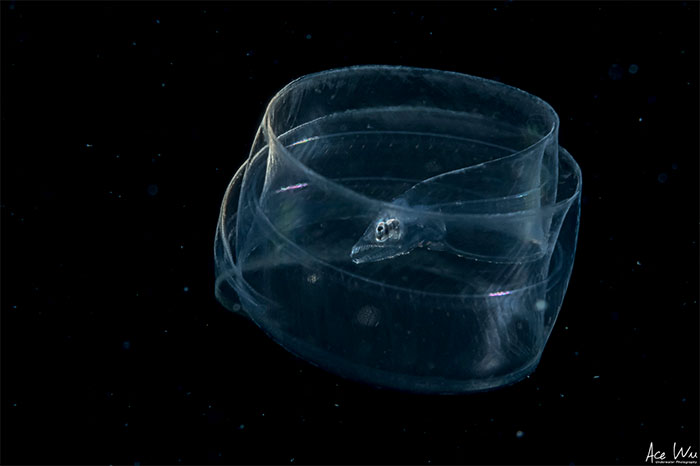
Image credits: yung-sen wu
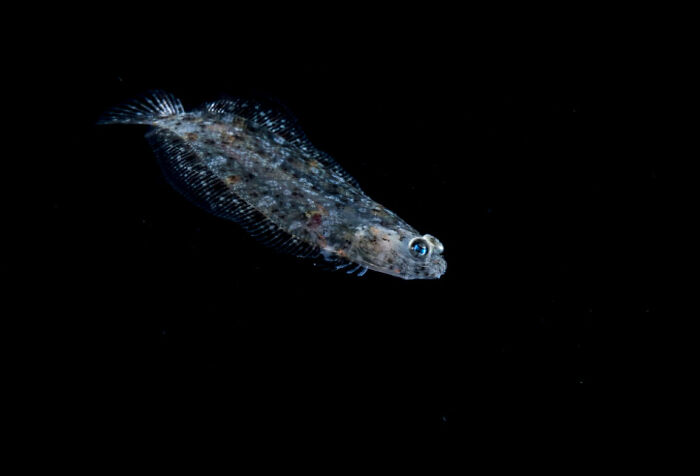
Image credits: yung-sen wu
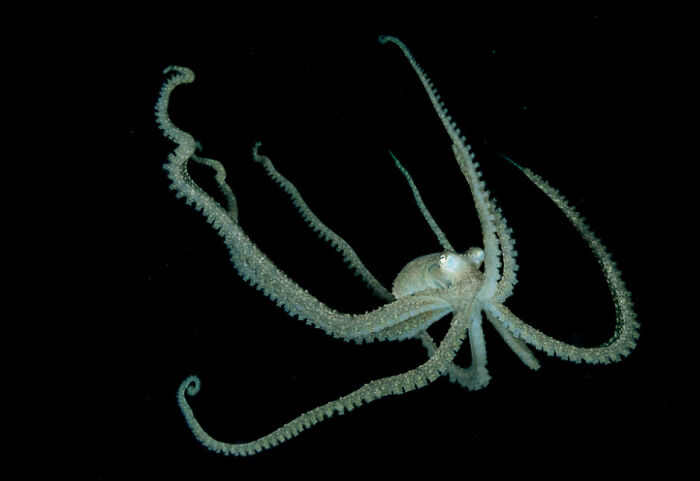
Image credits: yung-sen wu
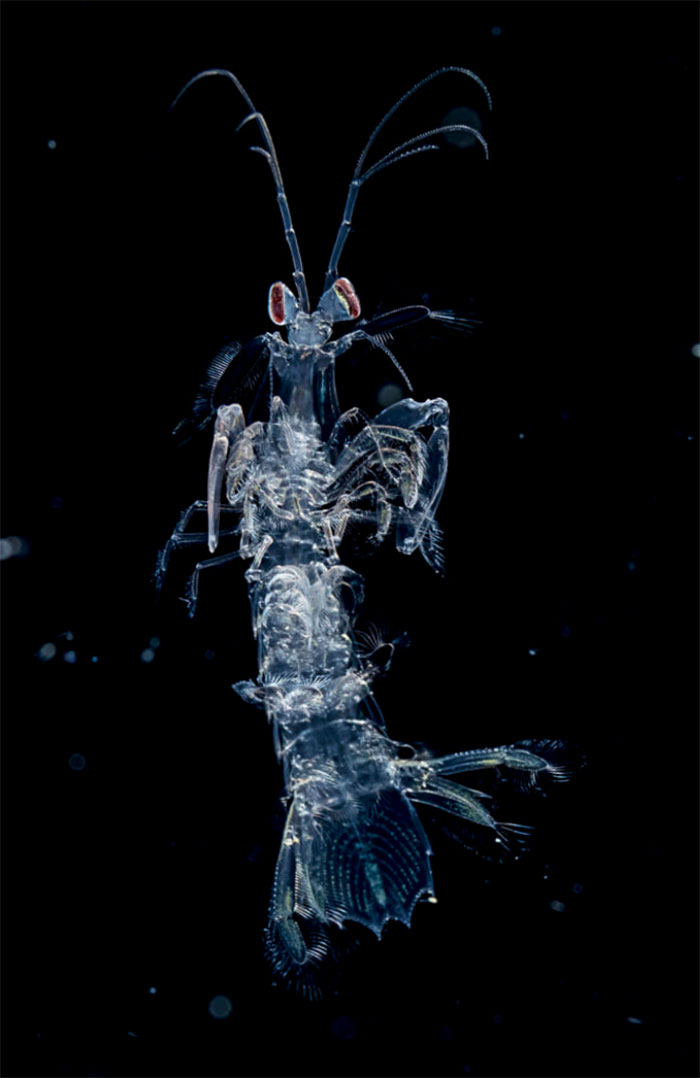
Image credits: yung-sen wu
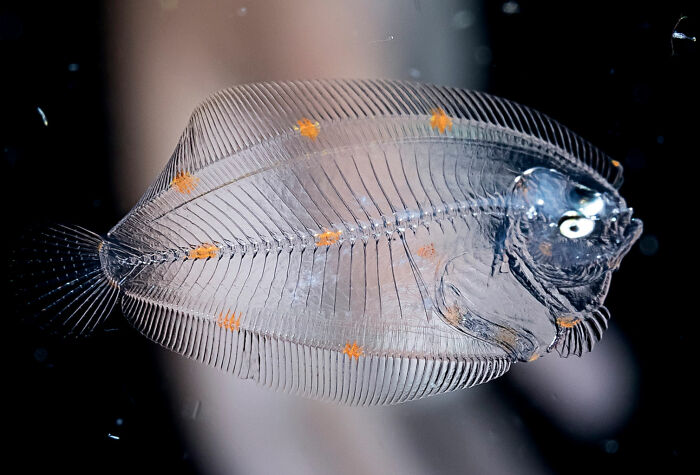
Image credits: yung-sen wu
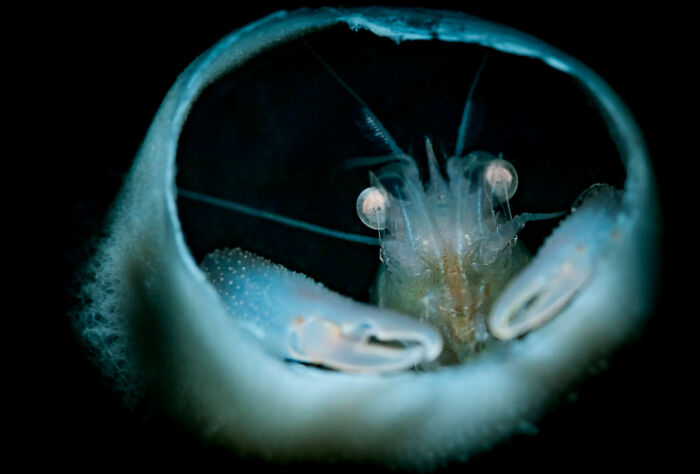
Image credits: yung-sen wu
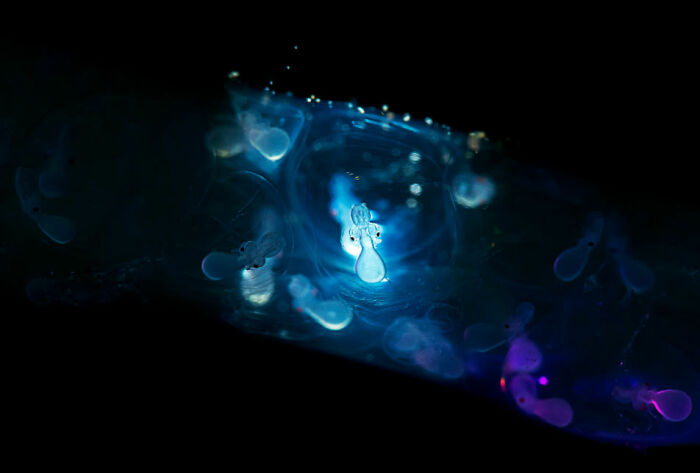
Image credits: yung-sen wu
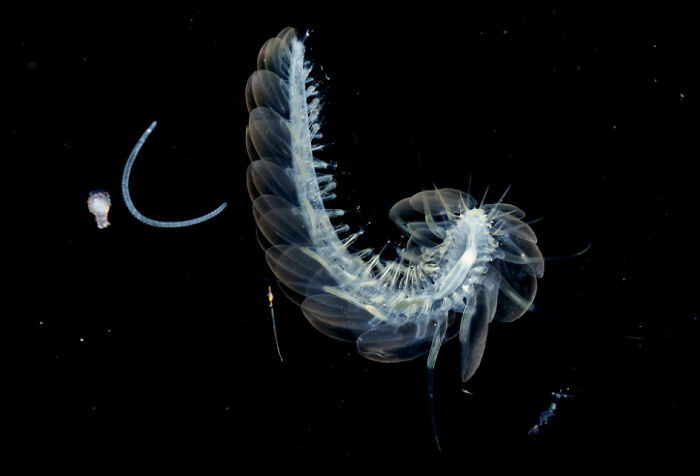
Image credits: yung-sen wu
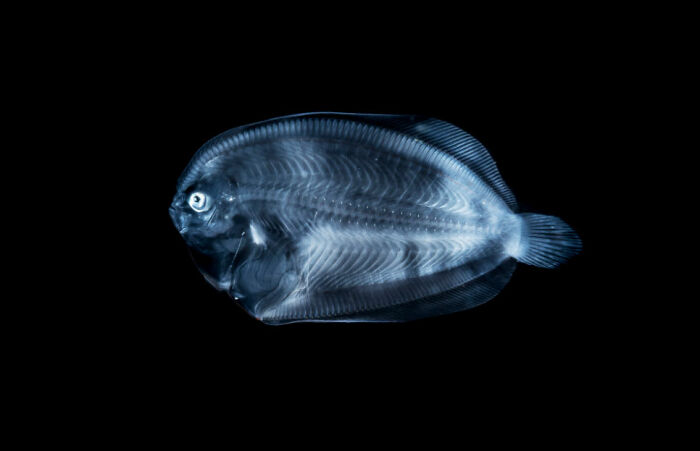
Image credits: yung-sen wu








